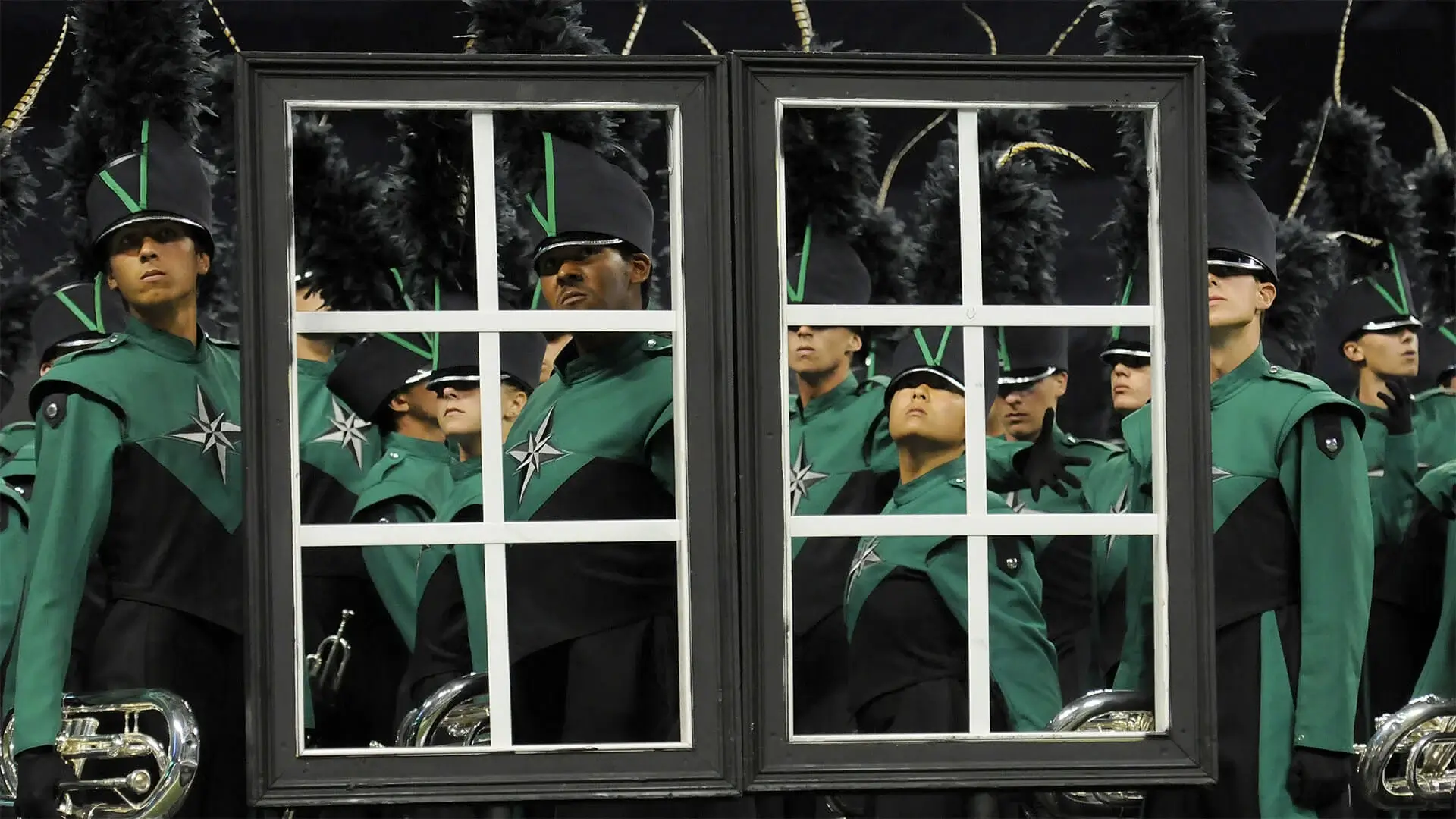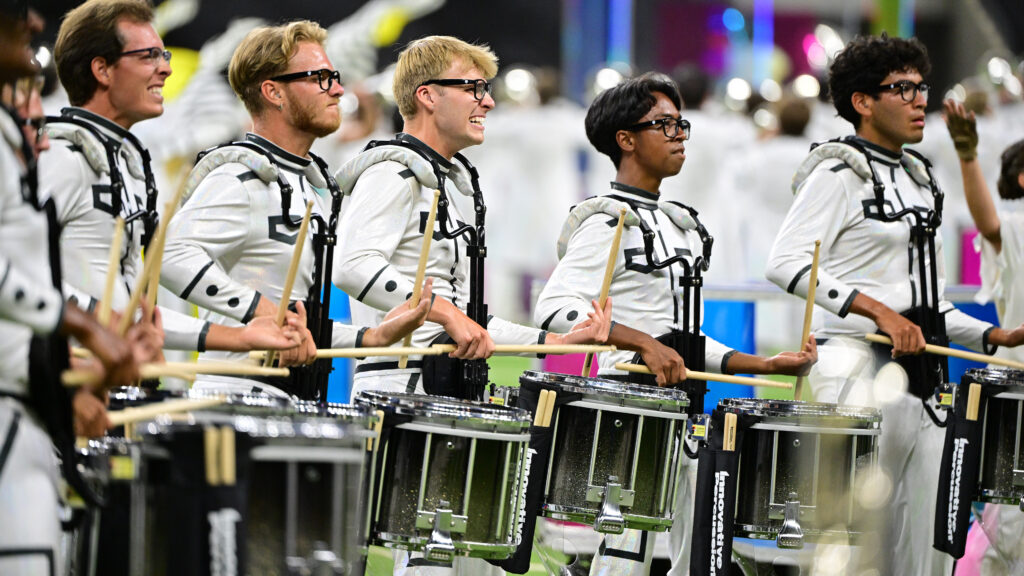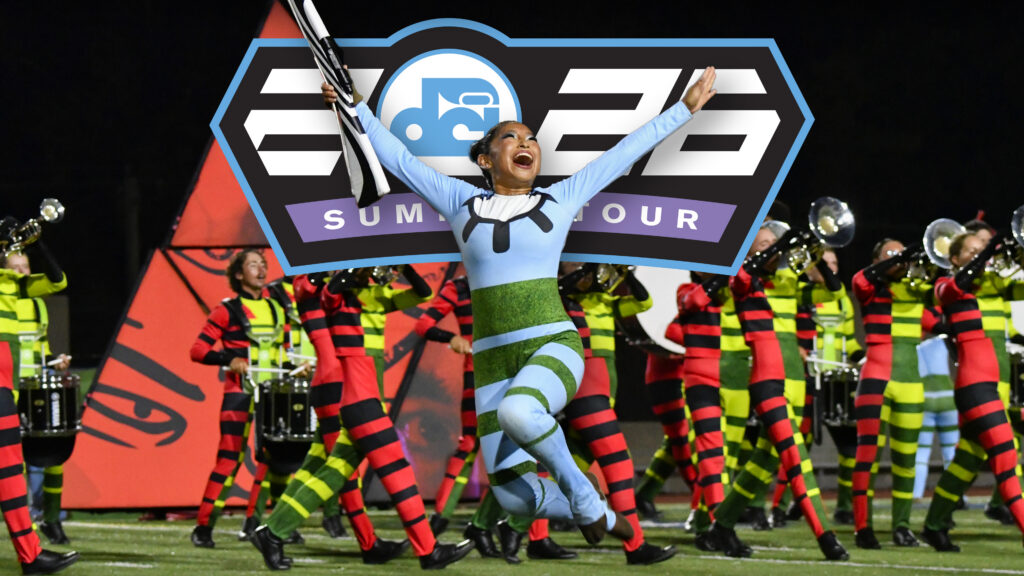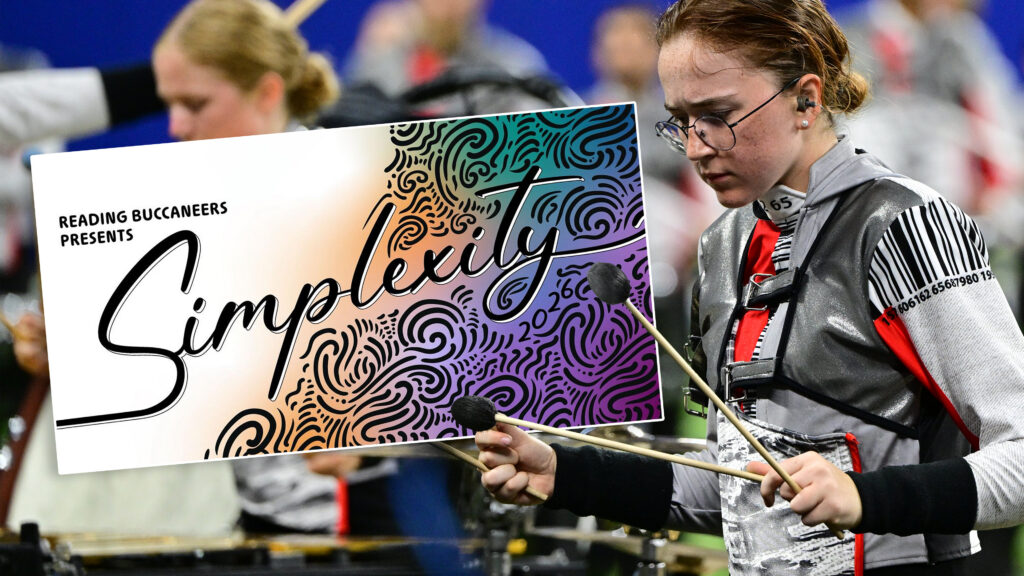The Drum Corps International World Championships returned to Indianapolis’ Lucas Oil Stadium for the sixth straight year in 2014.
Oregon Crusaders’ 19th-place production, “Nevermore,” was based on “The Raven,” the famed piece written in 1845 by Edgar Allen Poe. Poe’s poem followed a distressed man’s descent into insanity, made worse by the incessant chattering of a talking raven.
The show started with the sound of church bells and raven calls. The brass players were set up in three arcs around a prop window and door in the lower left corner of the field, while members of the drum line stretched in a single arc connecting the horns to another window and door in the upper right corner.
Narration of the poem, snippets of which were heard throughout the show, was recorded by Micah Brusse, a former snare drummer with the University of Oregon Drum Line and Blue Devils, and an arranger and instructor for a variety of percussion ensembles.
The eerie tones of an electronic violin started the judged portion of the show, leading into Zach Hemsey’s “Mind Heist,” written in 2010 for a film trailer for the movie, “Inception.”
During this work, the color guard members used purple flags resembling the window panes through which the raven would spook its victim. The return of the violin led into a piece by Kevin Walczyk, resident composer and professor at Western Oregon University. “Huapango” is the fifth and final movement to his “Octet Comparsas,” written in 2000 for string octet. A huapango is a traditional Mexican fiesta dance and musical style, typically danced upon a wooden platform.

The influence of Mexican music continued with “The Alabados Song” by Paul Bissell, an associate professor at Del Mar College in Texas. The piece was originally written in 2001 for solo marimba and tape and was primarily utilized as a percussion feature. This particular albado is an old ritual Mexican hymn depicting the soul of an elderly woman being taken to the afterlife. When the brass section came in, the purple window-pane flags were replaced with orange window pane flags.
The haunting ballad of Vienna Teng’s “The Hymn of Acxiom” introduced long, ruffled silks as feathered wings of the raven. The work came off the singer/songwriter’s 2013 album, “Aims,” and is arguably one of the most beautifully creepy songs of this decade. The piece ended with the horns in an arc across the entire length of the field.
American composer Samuel Barber wrote “Nocturne” for piano in 1959 as a tribute to John Field, an Irish pianist and composer who is often credited with creating the nocturne genre in the early 19th Century. A nocturne is a musical composition suggestive of the night, which, in the show, was wearing on as the victim of the raven was wearing down. The short interlude ended with the horns in a giant form of a raven.

The guard brought out circular props which, when flipped over, revealed the big, scary eye of the raven as it peered through the window. The violin returned to introduce Barber’s “Medea’s Dance of Vengeance,” with bits of “The Hymn of Axiom” heard in the background as the guard brought out flags imprinted with the raven’s image.
As the narrator repeated, “Nevermore,” the corps formed the image of the raven with its wings outspread, pushing the drill formation to the front of the field. The raven, its work done, was flying off to torment someone else.
The violin returned one last time to play the melody of Vienna Teng’s “My Medea,” off her 2004 “Warm Strangers” album. The horns fell to the field in two lines through which two color guard members ran. One made it out the door in the front of the field, slamming the door on the member following her, leaving him to suffer the horror of his own imagination.
For this week only, you can save on the Legacy Collection DVD that contains this complete Oregon Crusaders performance.
Buy the 2014 World Championship Volume II DVD.
(Available 20% off for a limited time only.)
Discount DVD offer ends Monday, June 13, 2016.

Michael Boo was a member of the Cavaliers from 1975-1977. He has written about the drum corps activity for more than 35 years and serves as a staff writer for various Drum Corps International projects. Boo has written for numerous other publications and has published an honors-winning book on the history of figure skating.
As an accomplished composer, Boo holds a bachelor’s degree in music education and a master’s degree in music theory and composition. He resides in Chesterton, Indiana.





